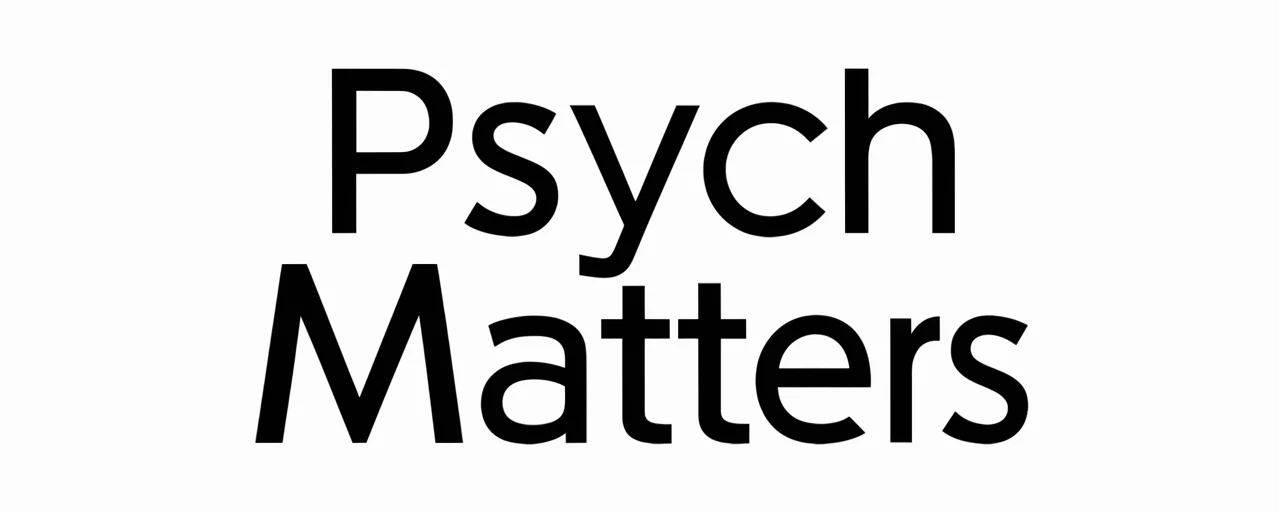Inside My Mind: What Psychology Means to Me
What makes us think, feel, and act the way we do? This question lies at the heart of the human experience, and for many, it remains an elusive mystery. For me, however, exploring this question is not just an academic exercise; it is a personal journey. The exploration of what psychology means to me has become a fundamental framework for navigating my own mind, understanding others, and intentionally shaping my life. It is more than a field of study; it is a practical toolkit for self-awareness, a guide for fostering meaningful relationships, and a source of profound personal growth.
Mind Matters: My Personal Definition of Psychology
Formally, psychology is defined as the scientific study of the mind and behavior. As detailed by sources like the Cape Fear Community College library guide, it’s a vast academic discipline that seeks to understand conscious and unconscious phenomena. It is foundational to understanding human behavior and mental processes. While I deeply respect this rigorous, evidence-based approach, my personal definition extends into the fabric of daily existence. To me, psychology is the art of turning the lens of inquiry inward. It is the active process of dissecting my own emotions, motivations, and cognitive patterns to live a more conscious and fulfilling life.

This perspective relies on embracing the scientific nature of psychology—not as a collection of static facts, but as a method for forming hypotheses about myself and testing them in the real world. It transforms abstract concepts into tangible tools for improving my mental health and overall well-being.
Why Psychology Resonates with Me
My fascination with psychology stems from a deep-seated desire for understanding—not just of the world, but of myself. It provides a structured language for the internal chaos we all experience. Learning psychological principles gave me the vocabulary to articulate feelings, identify recurring behavioral patterns, and recognize the powerful influence of past experiences on my present self. This journey of personal development has been one of moving from being a passive product of my circumstances to an active architect of my future.

One of the most powerful revelations has been that understanding the ‘why’ behind my actions grants me the power to change the ‘what.’ It’s a shift from reaction to intention, a cornerstone of realizing human potential.
This path of introspection is a continuous process of evolution. Seeing how my perspectives and coping mechanisms have matured over time reinforces psychology’s central role in charting how we grow and change throughout life. It’s not about achieving a perfect, static state of “happiness,” but about embracing the dynamic journey of becoming a more resilient and self-aware individual.
Influential Branches in My Perspective
While psychology is a broad field with many branches, several specific perspectives, as outlined by resources like Simply Psychology and Verywell Mind, have profoundly shaped my worldview. These frameworks provide unique lenses for interpreting human behavior and have been particularly influential in my personal growth journey.

- Cognitive Psychology: The insight that our thoughts directly influence our emotions and behaviors was a game-changer. Learning about cognitive distortions—like catastrophizing or black-and-white thinking—gave me a practical method for challenging and reframing negative thought patterns. It empowers me to take control of my internal narrative, which has been crucial for anxiety relief and stress management.
- Humanistic Psychology: This perspective, with its emphasis on personal growth, free will, and self-actualization, resonates deeply with my core values. Theorists like Carl Rogers and Abraham Maslow champion the idea that humans have an innate drive to reach their full potential. This belief provides a powerful sense of agency and motivation.
- Positive Psychology: Moving beyond just treating mental illness, positive psychology focuses on what makes life worth living. It offers evidence-based strategies for increasing life satisfaction and well-being. This branch is especially meaningful to me because it is proactive and empowering, providing a roadmap for cultivating human flourishing through positive psychology rather than simply fixing what is broken.
Psychology in My Daily Life
The true value of psychology, for me, lies in its practical application. Psychological principles are not confined to textbooks; they are active in my relationships, my work, and my self-care routines. Understanding psychology benefits my daily life by providing a concrete framework for navigating its complexities.

One of the most significant applications is in improving communication. By leveraging concepts of emotional intelligence, I can practice active listening, recognize non-verbal cues, and articulate my own needs more effectively. This has transformed my relationships, fostering deeper connection and minimizing misunderstandings.
In managing my well-being, psychology has been indispensable. Recognizing the intricate mind-body connection has changed how I approach my health. I understand now that chronic stress, a psychological state, can have tangible physical consequences. This awareness prompts me to prioritize stress management techniques like mindfulness and regular exercise, knowing they benefit both my brain function and physical health. These serve as essential coping mechanisms for navigating challenging situations with greater resilience.
Lasting Impact: Moving Forward with Psychology
My understanding of psychology has evolved from a simple academic interest to a core component of my identity. It has shifted from a set of theories to explain others to a practical guide for living my own life. The emotional impact of learning about psychology has been profound, instilling a sense of competence and hope in my ability to navigate life’s inevitable challenges.

Looking ahead, I hope to continue this journey of discovery. Delving deeper into fields like neuroscience can offer further insight into the biological underpinnings of consciousness and emotion. As the University of York highlights, psychological knowledge has wide-ranging applications, from counseling and therapy to education and organizational behavior. My goal is to continue applying these insights not only for my own personal development but also to better support and understand the people around me. The study of psychology is not a destination but a lifelong process of inquiry that consistently offers a clearer perspective on life.
Key Takeaways
- A Dual Lens: Psychology serves as both a scientific discipline for understanding human behavior and a personal lens for profound self-awareness and growth.
- Empowerment Through Cognition: Understanding cognitive principles allows you to actively challenge negative thought patterns, directly impacting your emotional well-being and resilience.
- Enhance Relationships: Applying concepts of emotional intelligence and active listening can drastically improve communication, leading to stronger and more meaningful connections.
- Integrate Mind and Body: Acknowledging the powerful mind-body connection is crucial for holistic health, making stress management techniques a vital part of physical and mental care.
- Embrace Lifelong Growth: Psychology provides a dynamic roadmap for personal development, offering tools to navigate challenges and intentionally cultivate a more fulfilling life.







